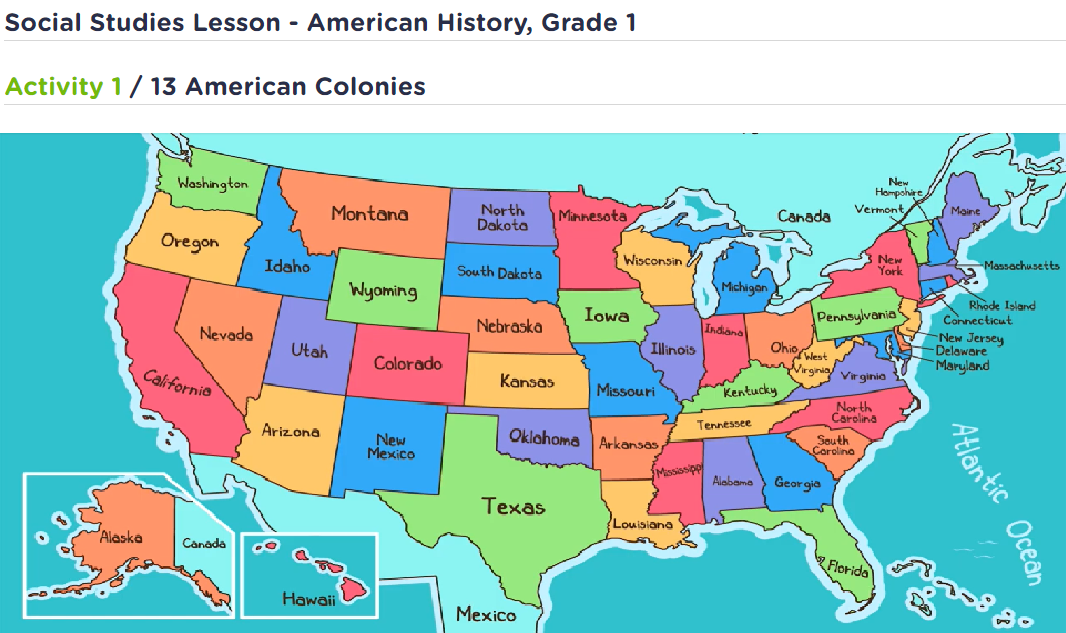Problem-Solving Skills Life Science Worksheets for Ages 3-7
4 filtered results
-
From - To
Explore our engaging Problem-Solving Skills Life Science Worksheets designed for children ages 3-7. These educational resources foster critical thinking, creativity, and analytical skills through fun, interactive exercises. Each worksheet introduces young learners to essential life science concepts while encouraging them to solve problems independently. From identifying animals in their habitats to experimenting with plant growth, your child will build a strong foundation in both problem-solving and scientific inquiry. Ideal for classroom use or at-home learning, these worksheets are perfect for inspiring curiosity and support developmental growth in young minds. Enhance your child's learning journey today with our vibrant and stimulating worksheets!
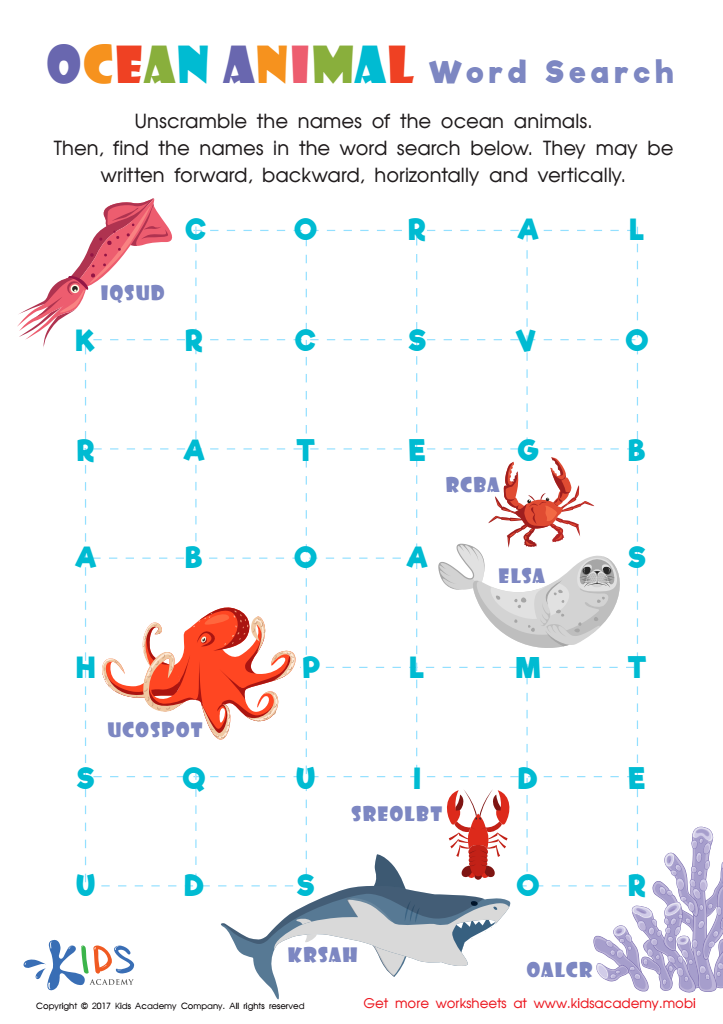

Ocean Animals Word Search Printable
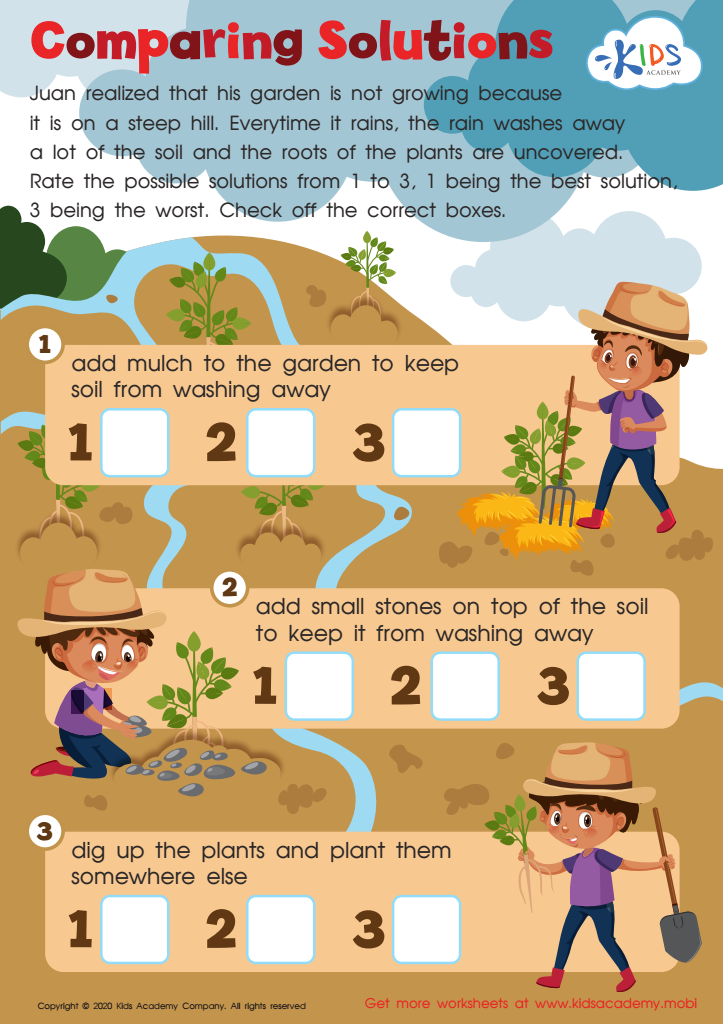

Comparing Solutions Worksheet
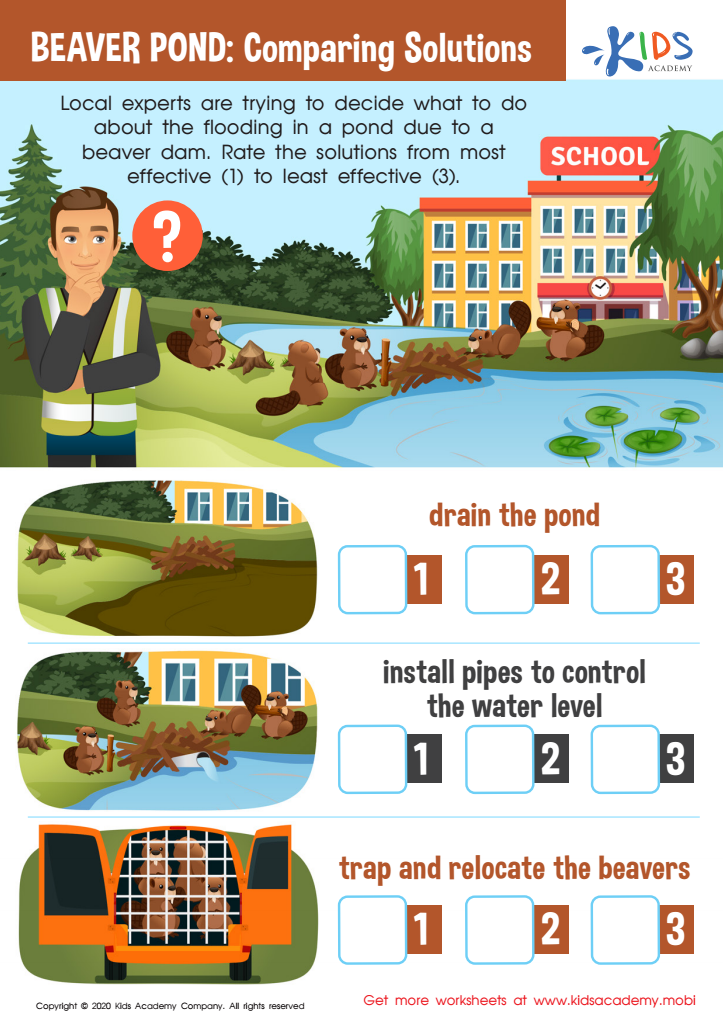

Beaver Pond: Comparing Solutions Worksheet
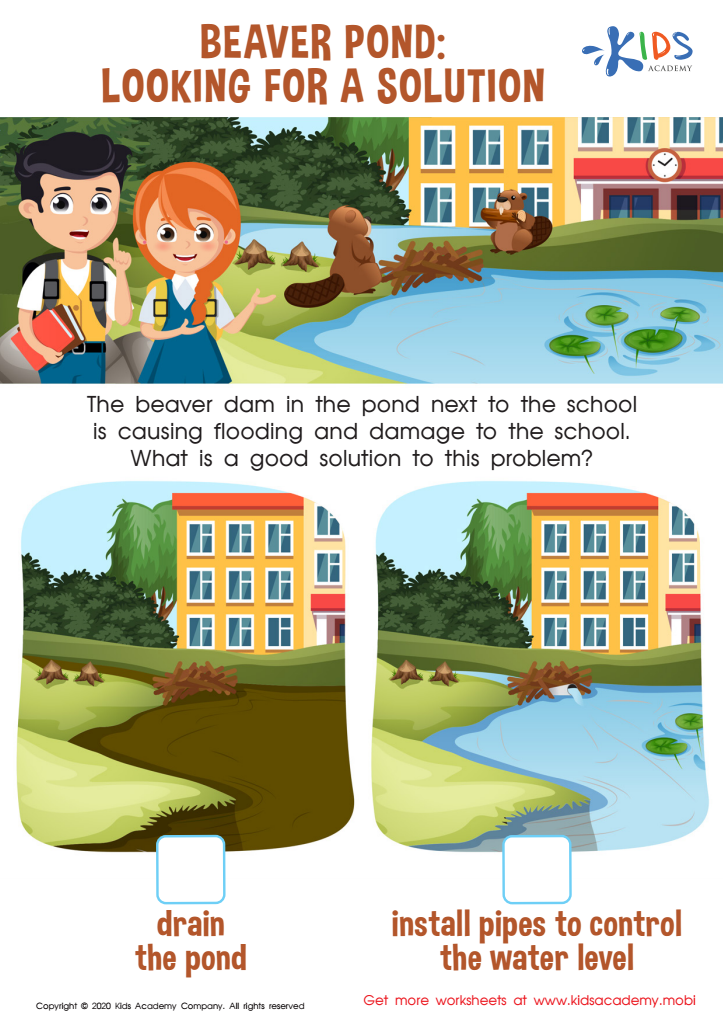

Beaver Pond: Looking for a Solution Worksheet
Problem-solving skills are crucial for young children, particularly in the context of life science education for ages 3-7. This developmental stage is pivotal for fostering curiosity and exploration, and life science provides an ideal platform for these skills to flourish. By engaging in life science activities, children learn to observe, ask questions, and formulate their own hypotheses about the world around them. This process not only deepens their understanding of living organisms and ecosystems but also sharpens their analytical and critical thinking abilities.
Parents and teachers should care about nurturing these skills because they lay the groundwork for future learning and literacy in science. Problem-solving requires an iterative process of trial and error, which promotes resilience and adaptability—traits essential for success in any field. Furthermore, life science encourages teamwork and collaboration when children share observations with peers, fostering social skills and communication.
In an age where scientific literacy is increasingly vital, equipping young learners with problem-solving skills empowers them to make informed decisions about health, sustainability, and the environment. By investing in these competencies early on, parents and educators can foster a generation of innovative thinkers capable of addressing future challenges effectively.
 Assign to My Students
Assign to My Students



